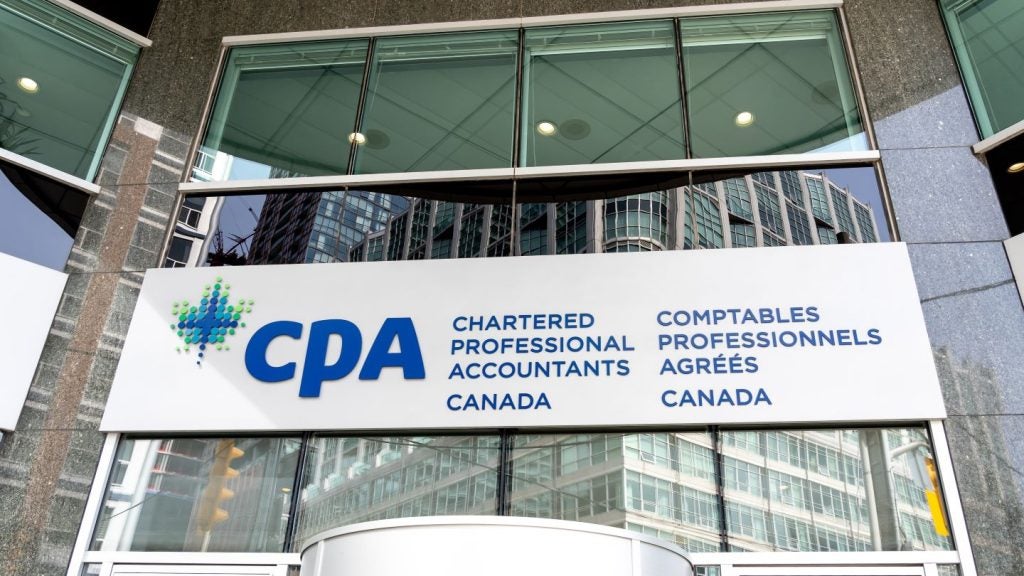
The last few years have seen unprecedented levels of private equity (PE) activity in the global accounting services sector, driven by the visible success of the largest platforms and the clear organic and inorganic investment thesis. Lincoln International’s Lewis Gray, John Hamilton, Martijn Koops, Ed Lethbridge and Camilla Lindau outline relevant sector deals, why the industry is attractive to PE, and the challenges to be cognizant of when investing in accounting services providers
Each of the last three years has seen a record global number of PE platform investments in accounting services firms: 32 in 2023, 27 in 2022, 26 in 2021.

Access deeper industry intelligence
Experience unmatched clarity with a single platform that combines unique data, AI, and human expertise.
Historically the partnership-style ownership model of these firms has deterred them from taking third-party investment, but the requirement to raise capital to grow through investment in processes and technology has become critical to remain competitive.
In parallel, PE has also devised more creative investment structures that accommodate the partnership model of these firms and is more comfortable with the dynamics of investing in ‘people-based’ professional services operating models.
Just over a third of the PE platform investments were made in US firms – where it is expected that by the end of 2024 one in three of the top 30 accounting firms in the country will be PE-backed – with a similar proportion of global investments being made in firms headquartered in the UK, Nordics and Benelux.
The most notable recent transactions in the US include Bain Capital’s investment in Sikich, New Mountain Capital’s acquisition of a 60% stake in Grant Thornton, and Hellman & Friedman’s investment in Baker Tilly, with another four major firms currently rumoured to be in fundraising processes.

US Tariffs are shifting - will you react or anticipate?
Don’t let policy changes catch you off guard. Stay proactive with real-time data and expert analysis.
By GlobalDataThe UK market – where SME-focused platforms have attracted the most PE attention – has seen 19 platform investments by high-profile mid-market PE houses, with Azets (backed by initially by HG Capital and more recently by PAI Partners), Moore Kingston Smith (Waterland) and Xeinadin (Exponent) the larger examples.
In Benelux, investors navigated the challenge of finding targets of scale by simultaneously combining multiple firms. Capital A created Coöperatie Unia from the merger of three firms, and Avedon combined HLB Witlox Van den Boomen, Koenen & Co and PKF Wallast to create a top 10 service provider in the Netherlands.
In the Nordics pan-European fund Vitruvian Partners invested in Accountor and subsequently Aspia – with a notable recent transaction being the sale of Accountor’s services division to Aspia. Meanwhile, Norverstor (Rantalainen), IK Partners (Qconcept, and formerly Aspia) and Altor (Ludvig & Co) have all built conviction in the sector.
The global number of transactions in the accounting services sector over the same three-year period increases to over 500 when including platform bolt-ons and strategic transactions, highlighting that consolidating a fragmented and often regional market is a fundamental lever for PE to generate returns from their investments.
M&A machine Azets has made over 90 bolt-on acquisitions during its period of PE ownership, and it is common to see PE-backed firms making 10 or more acquisitions during a hold period to support geographic infill or the extension of capabilities into areas like tax advisory, payroll and credit management.
A resilient market with a cash-generative business model and buy-and-build opportunities – ticking all the boxes for PE
Part of PE’s attraction to the SME accounting space is the market opportunity that exists as the Big Four and some of the larger accountancy groups retrench from the SME market to focus on larger corporate advisory relationships, while also seeing some turmoil in their own audit divisions as regulation toughens up on conflicts of interest.
IK Partners seized on this opportunity to create Aspia from the acquisition of PwC and KPMG’s Swedish operations before selling the group to Vitruvian, and Deloitte has also sold its Swedish accounting operations to Vitruvian-backed Accountor.
The market for these services will also continue to grow as outsourced solutions penetrate SME finance and operational functions. There is also the opportunity for providers to capitalise on technology, data and AI to augment service delivery and deliver further efficiencies in cost and more insightful client outcomes.
The firms with these genuinely technology-enabled capabilities, ideally with in-house proprietary IP that can be rolled out across newly acquired firms, command the most attractive platform valuations.
The sector is considered to have more limited downside as it is resilient in challenging macroeconomic conditions and demand is regulatory-driven. Service providers exhibit strong recurring revenues and are viewed as trusted advisors to SMEs. They fast become business critical relationships, leading to low levels of customer churn and prohibitive costs of switching provider.
A fragmented market lends itself to a buy-and-build strategy to acquire regional accountants to bolster geographic coverage and scale the client base. This strategy also creates opportunities to extract synergies and increase cross-selling of existing and newly acquired capabilities. There is also a multiple arbitrage opportunity where smaller firms with stakeholders seeking an exit without a credible succession plan can be acquired at attractive multiples.
Obstacles to clear when investing in the sector – people are paramount
Ultimately, accounting services organisations are people businesses and thus succession planning and retention of people are crucial.
Making an investment and disrupting the status quo of an existing partnership model without carefully considering the impact on the incentives of current senior or equity partners and future leaders of the business can lead to many issues.
This is not just an issue at the moment of the acquisition; evolving these incentive structures as the business continues to grow is also important. Having an adviser that can navigate these complex scenarios and structures from experience can significantly reduce the execution risk.
There is also a divergence of approaches to what the right level of integration is post-acquisition. Some consolidators will only acquire controlling or 100% stakes whereas others will take a lower integration risk approach and acquire minority stakes, leaving acquisitions with a high degree of autonomy while trying to maximise the commercial relationships between their owned firms. Branding is also an important topic, particularly in localised markets where SMEs typically work with firms in close geographical proximity.
There is still a huge amount of opportunity in the long tail of providers and a rich audience of bolt-on targets, but the sheer volume of acquisitive platform investments has made the market for bolt-ons competitive and the price of bolt-ons, particularly in the £3m+ ($3.9m+) EBITDA range, has crept up slowly.
With the weight of investment into the sector in the last three years many of the platform investments are now reaching the stage where their investors will begin to consider their exit strategies.
Internationalisation through organic means has its challenges, with different regulatory structures, standards and requirements making new market access risky, but as a result the larger ‘consolidators of the consolidators’ are looking beyond domestic markets to drive scale – Azets, the most international platform, and some Nordic players like Rantalainen and Accountor are already expanding beyond their borders.
While it is easy to assume the most likely exit is to a large domestic consolidator or another PE in a secondary or tertiary transaction, an adviser with the right global platform and international relationships can help to explore and unlock a rich but largely untested vein of appetite from international consolidators and strategics in adjacent professional services sectors.






